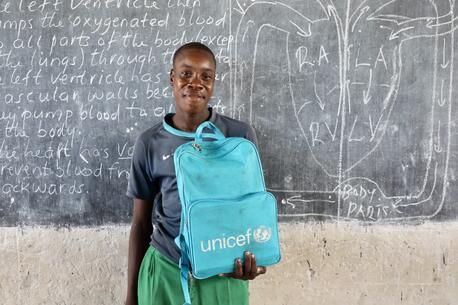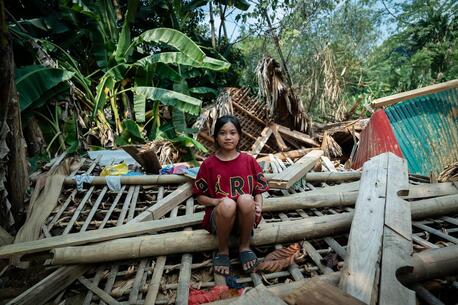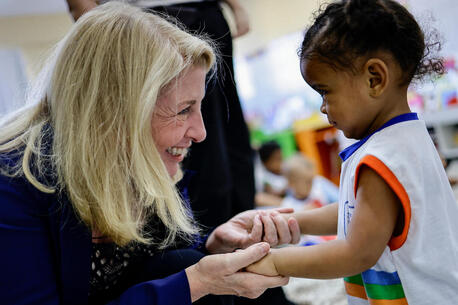
UNICEF in Brazil
From urban centers to remote communities, UNICEF supports government-led efforts to improve children's access to health care, education and protection, focusing on the most vulnerable. Learn more, including how to help.
Humanitarian crisis in Brazil fueled by poverty, climate change
Despite rapid development and robust economic growth, millions of children and their families in Brazil, South America’s largest nation, continue to live in poverty.
The impacts of the COVID-19 pandemic, climate change and global inflation have slowed or reversed progress toward many Sustainable Development Goals (SDGs). More than half of Brazil’s children — some 32 million boys and girls — are experiencing some form of deprivation: out of school, forced into child labor, living in precarious housing or lacking access to adequate food, water and sanitation or other essentials.
An estimated 40 million children and adolescents in Brazil are vulnerable to climate and environmental risks. And the country has one of the highest rates of homicide and sexual violence against children and adolescents.
“Brazil is working hard to accelerate progress in all areas of children’s health, education and safety," UNICEF Executive Director Catherine Russell said following a four-day visit to the country in August 2023.
Russell visited three of Brazil’s largest cities, meeting with private sector partners and youth in São Paulo, government officials and civil society partners in Brasilia, and visiting vulnerable communities in the coastal city of Recife. "Brazil can serve as an important role model to put the rights of children at the heart of the [SDGs]," Russell said.
How UNICEF is helping children and families in Brazil
UNICEF Brazil works with educators, community-based organizations, civil society, the private sector, government and other partners to ensure that children and adolescents — including migrant children from Venezuela, many of whom arrive in Brazil unaccompanied — have greater access to quality and responsive health care, education and social protection.
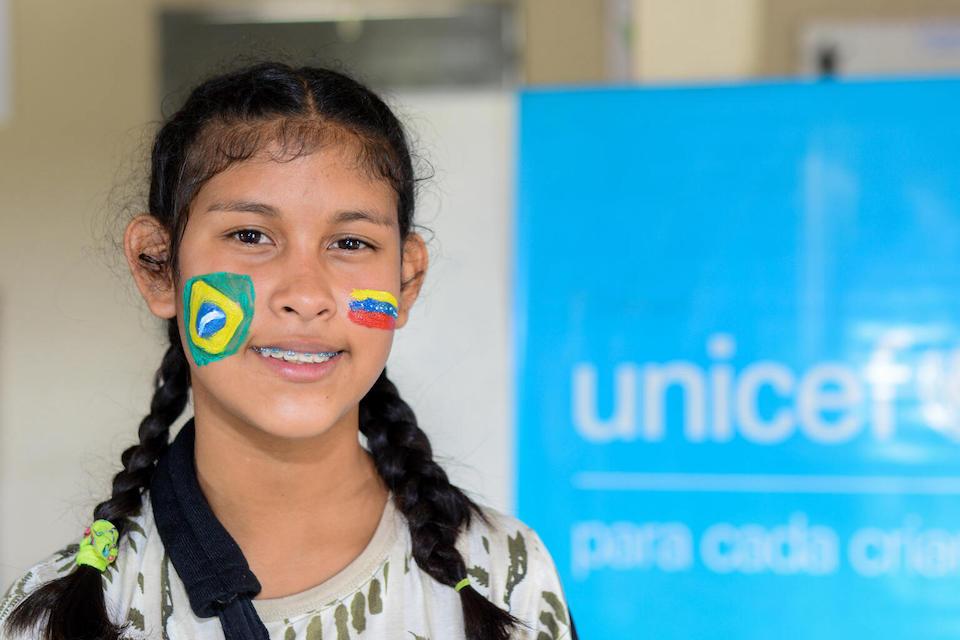
In health, UNICEF is supporting immunization catch-up campaigns and helping to strengthen disease prevention as the country grapples with spikes in cases of dengue, a mosquito-borne illness. UNICEF also works with partners to help strengthen support networks for adolescents and youth living with HIV, to safeguard their rights and fight stigma and prejudice.
To support improved child nutrition, UNICEF provides humanitarian cash transfers to impoverished families, runs public campaigns to promote breastfeeding and trains health and education professionals in healthy eating, with a special focus on indigenous and other marginalized communities.
In education, UNICEF works with local partners to help implement the Active School Search (Busca Ativa Escolar) program, which seeks to identify, enroll, support and monitor children and adolescents who are out of school or at risk of dropping out. UNICEF also works with municipalities to improve the quality of early childhood education, and trains primary and lower secondary teachers and school administrators in developing protective learning environments, implementing inclusive education and other strategies to improve student retention.
To strengthen child protection, UNICEF supports training programs in violence prevention and response, and collaborates on media campaigns, community engagement and public policy initiatives around violence prevention. The UNICEF SEAL (Selo UNICEF) initiative — aimed at promoting children's rights while preventing and reducing violence against children and adolescents in urban centers — is active in over 2,000 municipalities across 19 states. Learn more about this effort, related to UNICEF's Child Friendly Cities Initiative.
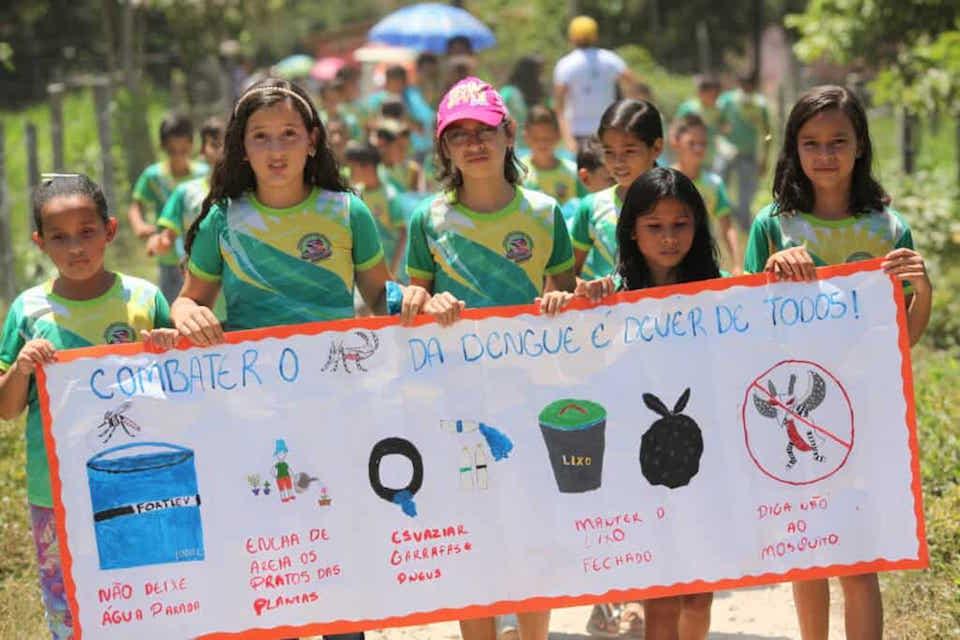
To improve access to safe water and sanitation, UNICEF focuses on capacity building and strengthening WASH in schools and health facilities.
UNICEF also looks for ways to assist Brazil's efforts to adapt to climate change, helping to strengthen the resilience of social services as local authorities brace for future climate shocks — including impacts of El Niño.
In response to a record drought in the state of Amazonas — the worst ever recorded — UNICEF is helping municipalities assess and respond to community needs, coordinating efforts with indigenous organizations, other UN agencies and other partners, within a broader climate change adaptation framework.
Child immunization — catching up on routine vaccinations
Improving child immunization rates remains a top public health priority in Brazil and all across Latin America.
Vaccination coverage for children in Brazil under age 5 had been slipping even before the COVID-19 pandemic disrupted routine immunization and other essential health services — causing rates to fall further.
To help the country catch up — and ensure all children are protected against potentially deadly diseases — UNICEF has helped expand vaccination sites outside of hospitals, bringing services to an array of convenient locations like daycare centers, and helping to train health professionals working in vaccination rooms.
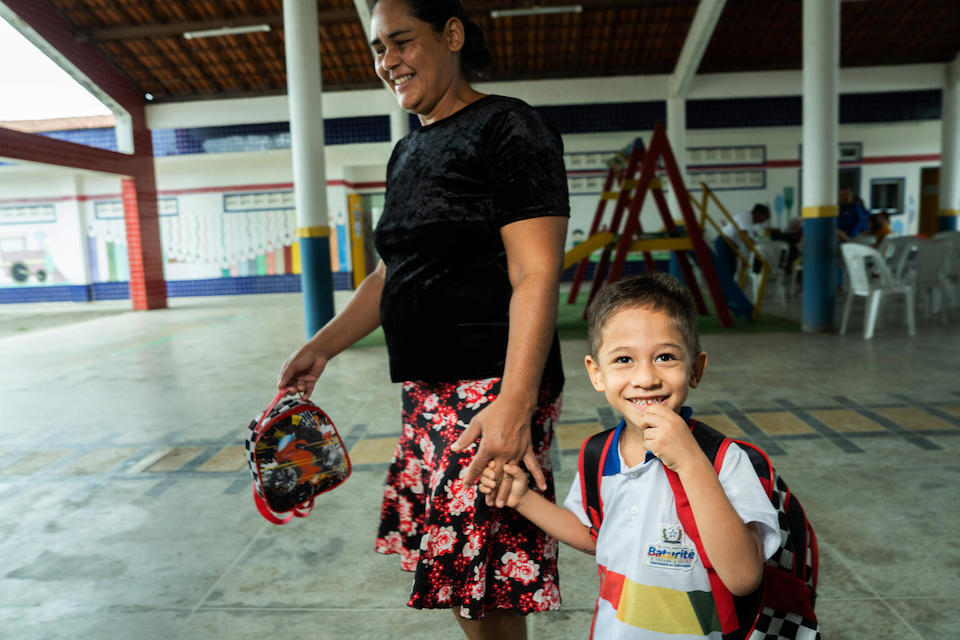
Several municipalities have since implemented programs for locating children under age 5 who are either behind on their vaccines or unvaccinated altogether by visiting schools, homes and town plazas, and arranging for services.
In Manaus, the capital city in the vast rainforest state of Amazonas, health workers are applying these strategies to serve city residents as well as families living in more remote areas, which requires different approaches and creative modes of transport.
Lindalva de Freitas, a community health worker in Manaus, is often seen walking the city’s streets, going up and down hills, balancing on improvised wooden bridges and when necessary, crossing the river in a canoe.
“We know that vaccines are important for the child's health, but many parents delay it because they don't have the time, because they have to work, because they don't have money, they can't come to the Health Unit,” she says. “So, our job needs to be to search for these families on a daily basis.”
At the Lago do Aleixo Health Unit in Manaus, where de Freitas and colleagues provide on-site care to children in need, recent patients included 4-year-old Gabriel de Oliveria and his two brothers, Kennedy, 5, and Kuana, 10. The boys lost both parents when Gabriel was just a baby.
“I just want to be healthy and strong enough to take care of them and not abandon them,” their grandmother Elmira de Oliveira says. “I want that one day, when they grow up, they can say, 'My grandmother didn't give me good clothes or new shoes, but she gave me a roof over my head, took care of me and fought for my health.’”
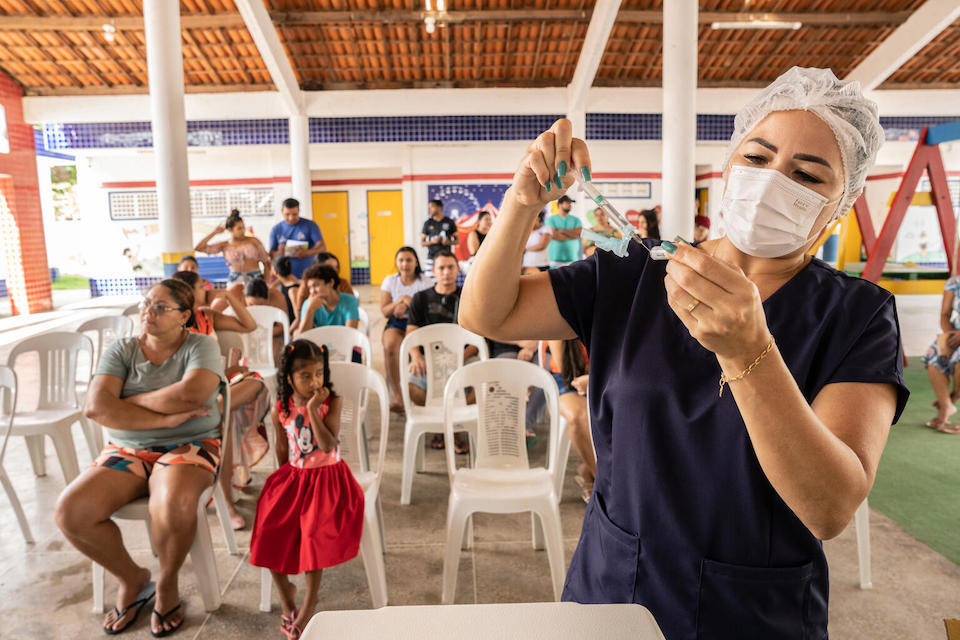
UNICEF works in over 190 countries and territories to meet the urgent needs of children and families in crisis. Your gift will help UNICEF stay flexible and ready to respond as conditions change and new disasters strike. Please make your 100% tax-deductible donation to UNICEF USA today.
